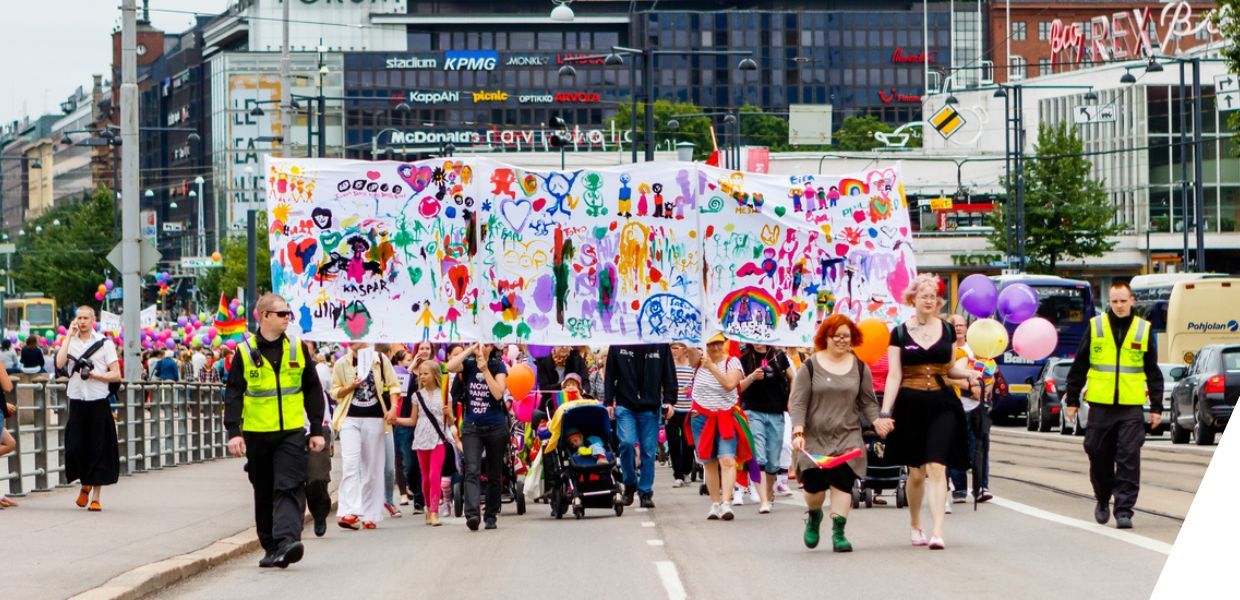The Digital Storytelling Festival encourages cultural heritage professionals, educators, creatives, and students around the world to boost their storytelling skills and tell stories exploring culture. Now, its first residency is experimenting with doing just that with a small group of students and new professionals who want to gain storytelling skills in a professional setting.
Along with specialist mentors, the participants are working in three formats - writing, social media, animation - to produce content as part of Europeana’s contribution to Pride month in June 2023. They are exploring LGBTQ+ and celebrating queer stories, narratives and cultural heritage from all around Europe, to add to our LGBTQ+ feature page.
Adrian Murphy, Europeana Collections Manager tells us why it’s important that Europeana is focussing on LGBTQ+ content for this residency. ‘Over the past few years, we've been diversifying the stories that we tell on the Europeana website. LGBTQ+ history has long been overlooked in cultural heritage collections. Through this residency, we're hoping to contribute to sharing a broader picture of the lives of people living in Europe.’
Our creative participants
The call for applicants was launched in April and we received a high number of strong submissions. After considering each application carefully, assessing what each applicant wanted to achieve through the residency, what experience and interests they have and how they think they will benefit from the residency, we invited eight people based in six countries (Greece, Bulgaria, Malta, Germany, the Netherlands and Lithuania) to join us.
Ayda Naasan Agha Spyridopoulou is joining the residency and says, 'I come from a diverse cultural background with roots in Greece and Syria, and so I find it particularly important to be part of the conversation around cultural heritage. Preserving and sharing the stories and traditions of our ancestors is crucial to understanding our own identities and the world around us. This residency provides an opportunity to connect with like-minded professionals and enthusiasts who share my passion for cultural heritage and storytelling, and I am eager to learn from the experts in the field.'
Participant Audrey Rose Mizzi says, ‘I'd like to make sure that I have a level of understanding when creating LGBTQI+ stories that does not harm or create stressors within the community. I'm also intrigued by the use of social media, and which content nowadays would be best to communicate these stories, and how to effectively work in tandem with creatives to educate.’
Our creative mentors
Marianna Marcucci and Carola Carlino, both members of the Europeana Communicators Steering Group, will mentor the social media strand. Marianna says, ‘I love exploring different ways of communicating cultural content, combining the use of social media and storytelling.’ And Carola says, ‘I firmly believe that storytelling is the way through which we give life and voice to objects by showing ourselves to others. I look forward to creating emotional and significant stories.'
Beth Daley, Europeana Foundation’s Editorial Advisor, is the mentor for the writing strand. She says, ‘I’m looking forward to working with participants, helping them find their own voice and develop their storytelling skills. It might be a profile of an individual, a hidden story about a particular community, or even a poem inspired by an artwork or movement - I can’t wait to see what the group develops.’
Nick Cave is a Creative Specialist and mentor for the animation strand. He says, ‘I love how you can bring ideas alive and tell short stories using a mix of simple animation techniques, colour and engaging content. I’m hoping to introduce participants to new animation software and apps which will help their workflow and ideas come to fruition and want them to feel like their creations are just the beginning of their animated journeys!’
Find out more
The mentors and participants are working together in group workshops and one-to-one sessions throughout June. We can’t wait to find out - and share - what they create!
Discover more about telling digital stories with cultural heritage by watching the recordings of the Festival.


